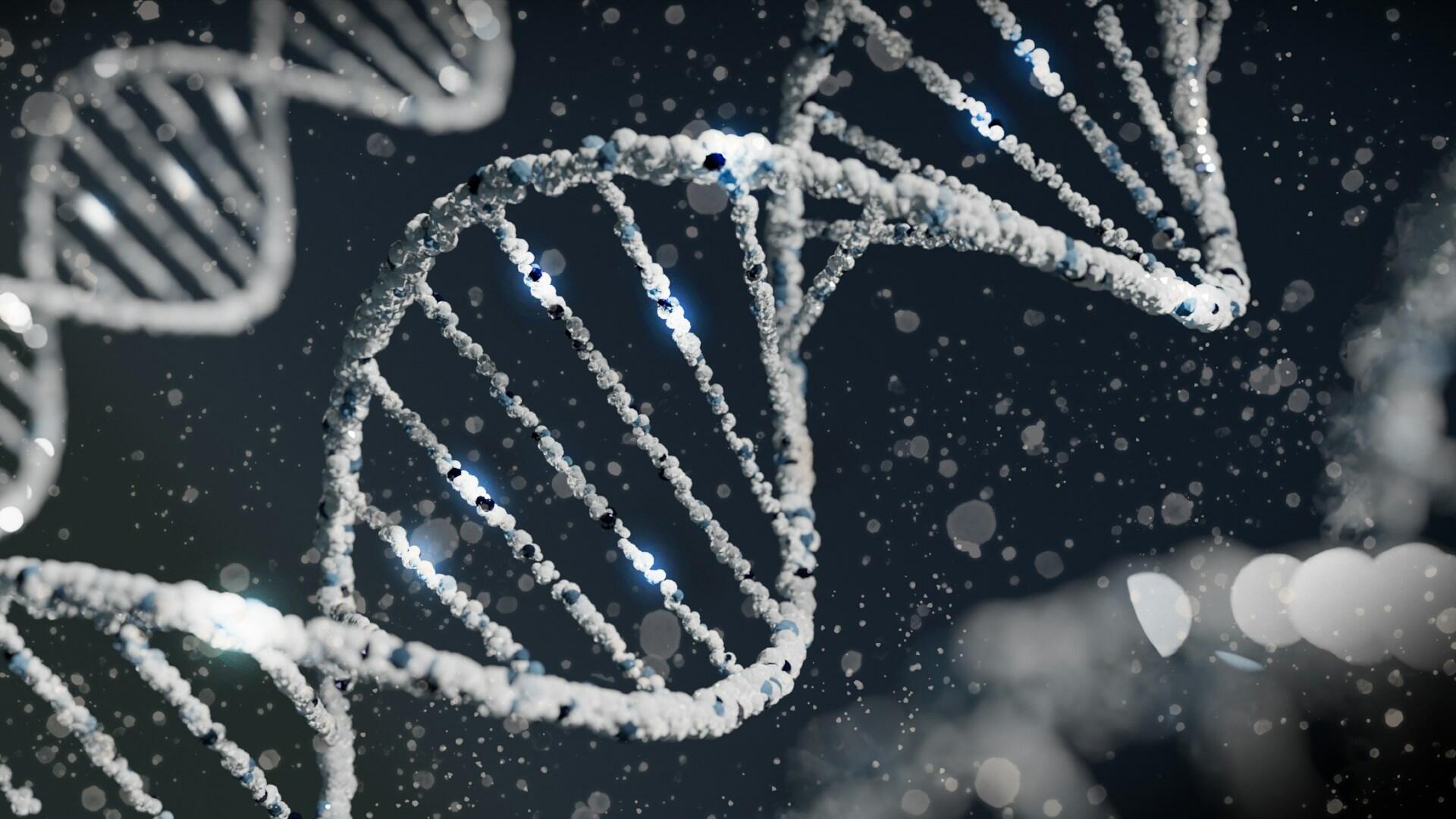Biotechnology studies living organisms on a cellular level to address and solve issues related to human health, agriculture and the environment. Learning biotechnology is essential for several reasons. The field can resolve some of the world's most pressing problems concerning food security, environmental sustainability and human health. It can also help individuals make informed decisions about genetic modification, cloning and other contentious matters in biological sciences. This article will discuss the subfields of biotechnology, their applications, potential benefits, drawbacks and societal impact!
Different Branches in Biotechnology
- 🧬 Medical Biotechnology
- 🌾 Agricultural Biotechnology
- 🏭 Industrial Biotechnology
- 🌍 Environmental Biotechnology
- 🕵️♂️ Forensic Biotechnology
- 🧪 Genetic Engineering
- ⚙️ Bioprocessing
- 💻 Bioinformatics
- 🔬 Nanobiotechnology

The 10 Branches of Biotechnology Fields of Study
Biotechnology has the potential to bring tremendous benefits to humankind, provided it is used wisely.
Dr. Craig Venter, geneticist and synthetic biology pioneer
Biotechnology is divided into several areas of study, each focused on a specific set of problems and solutions. These areas support work in medicine, farming, environmental cleanup and factory-based production. As methods improve, new uses appear along with questions about safety, fairness and long-term effects. The following list breaks down some of the main categories within this field!
Medical Biotechnology
Medical biotechnology is the study of new drugs, vaccines and therapies for treating human diseases. Medical biotechnology employs genetic engineering, biomanufacturing and pharmacology techniques in oncology, immunology and infectious diseases.

Are you looking for online biology classes?
Agricultural Biotechnology
Agricultural biotechnology is concerned with developing genetically modified crops and livestock to increase food production and improve sustainability. Agricultural biotechnology uses gene editing, tissue culture and hybridization techniques for crop improvement, livestock breeding and bioremediation.
Industrial Biotechnology
It studies biological systems to create new products and improve industrial processes. Industrial biotechnology employs fermentation, biocatalysts and metabolic engineering techniques and is used in industries for the production of biofuels, bioplastics and enzymes. Here is a short explanative video on YouTube to ease your comprehension!
Environmental Biotechnology
It studies biological systems to solve environmental issues such as pollution and waste management. Environmental biotechnology applications include water treatment, soil restoration and air pollution control.
Forensic Biotechnology
Forensic biotech uses biological evidence to solve crimes and identify individuals. Forensic biotechnology uses techniques such as DNA profiling, genetic fingerprinting and forensic anthropology in areas such as crime scene investigation, missing people cases and paternity testing.
Curious to find out more?
Superprof is an excellent platform for students searching for biology classes! Our tutors offer individualized and flexible tutoring services that adapt to students' particular needs by utilizing a large pool of experienced and qualified teachers. You can locate the ideal instructor who will help you accomplish your academic goals, whether learning the principles of biotechnology or specializing in a specific field.
Genetic Engineering
A subfield of biotechnology that involves modifying organisms' genetic material to improve and develop products. Genetic engineering has various uses, including creating recombinant proteins for medical use, increasing crop yields and inventing new bioremediation techniques. Transgenic organisms that express unique features, such as pest or disease resistance, can be created using genetic engineering techniques.
Bioprocessing
Bioprocessing is using biological systems to create valuable goods on a big scale. It includes fermentation, used to make beer, wine and other alcoholic beverages, as well as enzymes and other goods. Bioprocessing can also create renewable biofuels such as ethanol and biodiesel.
Bioprocessing is behind one of the most common snacks in the world: yogurt! The process uses live bacteria to ferment milk, transforming it into a probiotic-rich food that supports gut health. So every time you eat yogurt, you're enjoying the results of a natural bioprocess!
Bioinformatics
A subfield of biotechnology that uses computer science and statistics to analyze and interpret biological data, such as DNA sequences. Bioinformatics is essential in drug discovery, disease diagnostics and personalized treatment. It entails creating algorithms and software tools for analyzing and displaying massive datasets to extract relevant information.
Nanobiotechnology
A subdivision of biotechnology that involves using nanoscale materials and technologies for the development of healthcare and other industries. It includes establishing nanoscale drug delivery systems, biosensors and diagnostic tools. Nanobiotechnology is also used in tissue engineering, where nanoscale supports can facilitate cell growth and differentiation.
Biotechnology is a constantly expanding field with areas as part of sub-fields that offer numerous opportunities for study and invention. If you are looking for assistance with studying these sub-fields of biotechnology, Superprof has qualified tutors to help you. Are you looking for a career in biotechnology?
Marine Biotechnology
Marine biotechnology is the study and use of marine life to solve problems and create new materials. It is also the study on how to improve human activities such as farming, medicine and environmental management. Unlike traditional biotechnology, which often focuses on land-based organisms, marine biotechnology taps into the wide variety of life found in oceans, seas and other saltwater environments. This includes fish, shellfish, seaweed, bacteria and even deep-sea organisms that can survive extreme pressure, darkness and temperature.
One important area is the development of new drugs. Certain marine organisms produce chemicals that help them fight disease, avoid predators or communicate. Researchers study these chemicals to see if they can be used in treating human illnesses, especially in cases where land-based sources have failed to produce effective results. Some of the most promising cancer and antibiotic treatments being studied today come from sea sponges, jellyfish and marine fungi!
Another growing use is in aquaculture. Marine biotechnology helps improve the breeding, growth and health of fish and shellfish raised for food. For example, specific feed additives or probiotics developed from marine microbes can reduce disease and lower the need for antibiotics. This helps make seafood farming more efficient and less harmful to the environment. In the environmental sector, marine organisms are used to monitor and clean up pollution. Some types of algae or bacteria can absorb heavy metals or break down harmful chemicals, making them useful in restoring coastal or marine ecosystems.
Marine enzymes, proteins that speed up chemical reactions, are increasingly used in industries like food processing, textiles and biofuels. They are used especially when traditional enzymes can't handle high heat or salt. Overall, marine biotechnology continues to uncover surprising uses for life forms we still know very little about, offering new paths for research, production and environmental care!
What Skills Are Required to Establish a Career in Biotechnology Jobs?
Studying biotechnology requires information and comprehension about manipulating biological processes to create goods and technologies that benefit the environment, agriculture and human health. It necessitates learning genetics, microbiology, biochemistry and molecular biology and having a solid understanding of biology, chemistry and mathematics. Additionally, it calls for practical laboratory experience, reading scholarly works, attending conferences, and networking with industry experts.
Superprof is an online platform that links students with qualified and experienced tutors. These tutors provide interactive biology lessons tailored to their needs and learning goals. It can help students develop a strong foundation in biology, chemistry, and math and stay up-to-date with the latest developments.

Why Should You Acquire a Degree in Biotechnology?
Biotechnology is a fast-expanding area that blends biology, chemistry and engineering to create new products and processes. Biotechnology classes can be advantageous if you want to pursue a career in biotechnology or enhance your knowledge in this field. Here are a few ways how biotechnology can benefit you!

Acquire Knowledge and Skills
Biotechnology classes give students a firm grasp of the principles and procedures employed in the biotechnology industry. You can learn how to modify genes, create and manipulate biological molecules and plan experiments.
Improve Your Career
Biotechnology is a highly competitive sector and a strong biotech background can improve your career prospects and income potential. Companies are continuously looking for people with a strong understanding of biotechnology.
Maintain Your Knowledge
Biotech is a fast-paced sector with ongoing breakthroughs and new technologies. Attending biotechnology classes will help you stay up to date with industry trends and advancements, making you a valued asset.

What Can You Do with a Degree in Biotechnology?
Biotechnology is a rapidly growing field that studies biological processes to create new products and technologies that improve human lives. A vast range of industries is included in this field, such as healthcare, agriculture, environmental science and more. Students with degrees in biotechnology can access a variety of career options across several industries as there is a rising demand for qualified workers in this subject. There are numerous biotechnology jobs opportunities, which can be categorized into the following groups.
Research and Development
Those that fall under this category work on developing new technology and goods. They work in biomanufacturing, genetic engineering and medication development. Some popular roles in this sector are product development managers, lab technicians and research scientists.
Quality Control and Assurance
Jobs in the QA sector require individuals to ensure that goods and procedures meet quality standards.

Specialists in this field are responsible for conducting product inspections, testing and analysis and ensuring that regulations are followed.
Jobs in quality assurance and control include positions like regulatory affairs specialists, quality assurance managers and quality control analysts.
Production and Manufacturing
Individuals in this category work on developing and manufacturing biotechnology goods like vaccines, drugs and biofuels. They are in charge of overseeing the production process as well as designing, running and maintaining production facilities. Manufacturing technicians, process engineers and production supervisors are a few examples of jobs in this sector.
Sales and Marketing
This field entails advertising and providing biotechnology goods to clients like medical facilities, clinics and academic organizations. Marketing strategy, sales team management and customer connection building fall under the purview of sales and marketing experts.
Management and Administration
Professionals in this area are in charge of managing and supervising the activities of biotechnology businesses and organizations. In addition to collecting funds and ensuring compliance with laws, they are responsible for developing and implementing strategic goals. CEO, CFO and operations manager positions are examples of management and administrative roles.
Those interested in a career in biotechnology have various options, as there is a growing need for qualified specialists in this industry.
The annual revenue of BioNTech SE increased from 19 billion euros to 17.3 billion euros. If you want to improve your employment prospects and skill set, Superprof can help you achieve your academic and professional goals through its private tutoring services. The table below lists biotechnology techniques by their subfields:
| Biotechnology Fields | Techniques |
|---|---|
| Genetic Engineering | CRISPR-Cas9, Gene Editing, Gene Synthesis |
| Genomics | DNA Sequencing, DNA Microarrays, Proteomics |
| Bioprocessing | Fermentation, Cell Culture, Protein Purification |
| Bioinformatics | Computational Biology, Data Mining, Artificial Intelligence |
| Nanobiotechnology | Nanoscale Imaging, Nanoparticle Synthesis, Nanofabrication |
| Tissue Engineering | Cell Culture, Biomaterials, 3D Printing |
Learn Biotechnology with Superprof
Biotechnology includes many disciplines that exploit biological processes to manufacture products and technologies. The primary subfields of biotechnology are environmental, industrial, agricultural and marine biotechnology. It is impossible to overrate the position of biotechnology in shaping the future. Some of the most urgent issues facing the globe today, such as food and energy shortages, pollution of the environment and disease epidemics, may be resolved with the help of biotechnology.
Learning this field and its disciplines offer a broad range of progressive, rewarding and fulfilling career opportunities. However, it is a complex field and understanding it requires constant assistance and support. And you don't have to worry about that while Superprof is here!
With Superprof, you get access to hundreds of highly qualified and experienced biotechnology tutors, offering one-on-one lessons at affordable rates. With Superprof's flexible class schedules, personalized lessons and liberty to continue at your preferred pace, there is no reason not to learn this complex yet interesting field of science! So sign up today to contribute to the better of the world tomorrow with your biotech knowledge and skills!
Summarize with AI:















